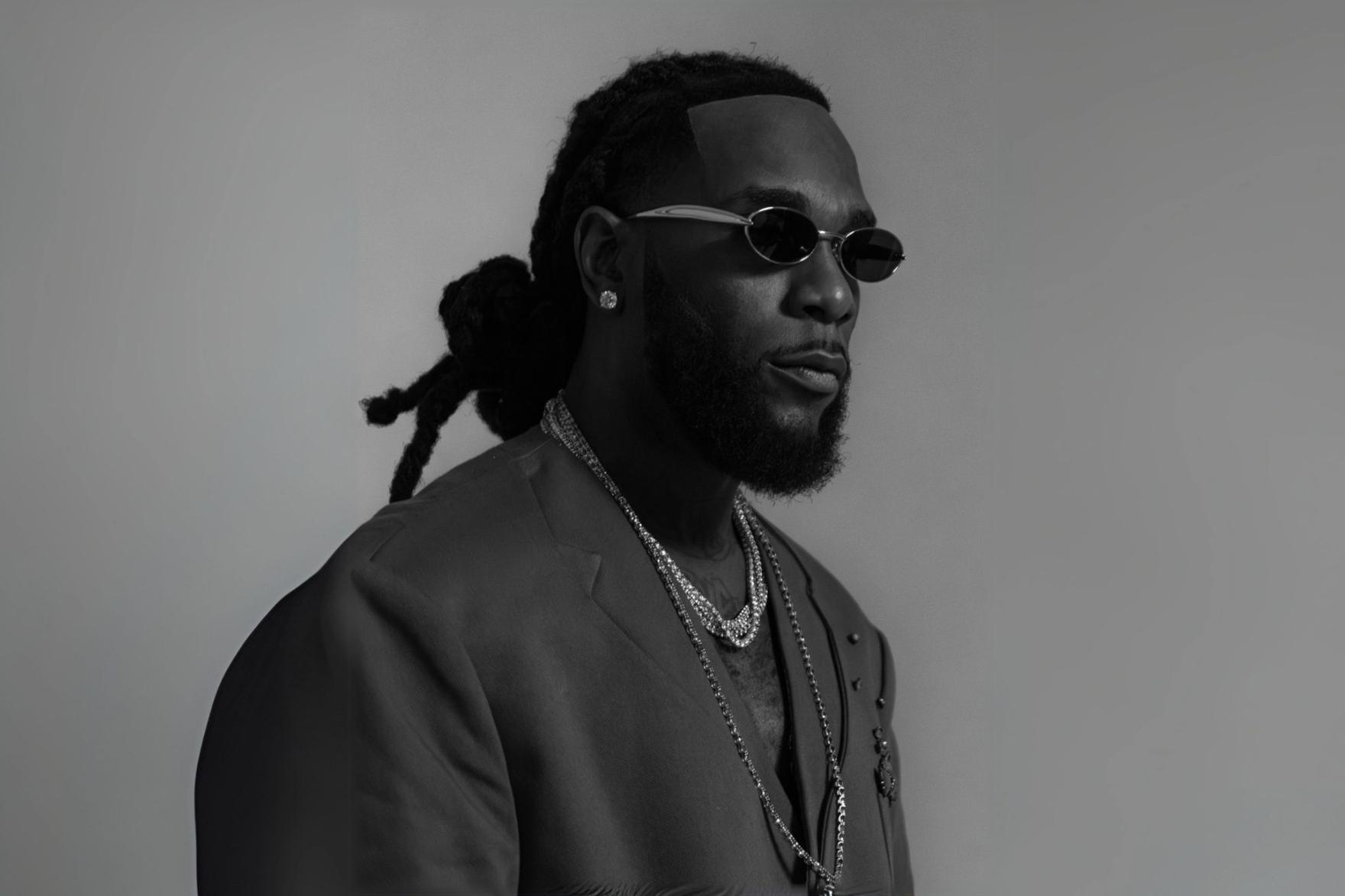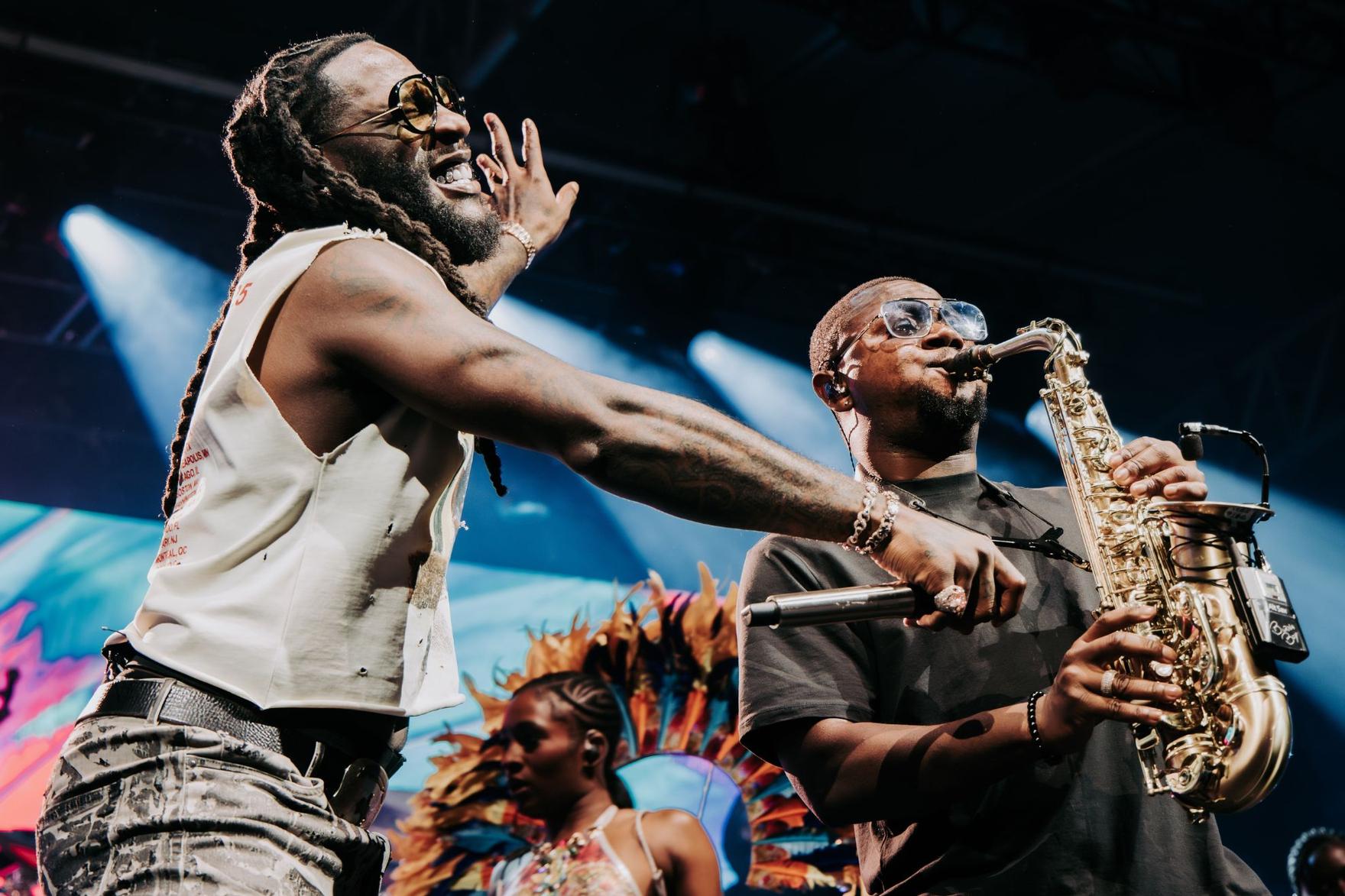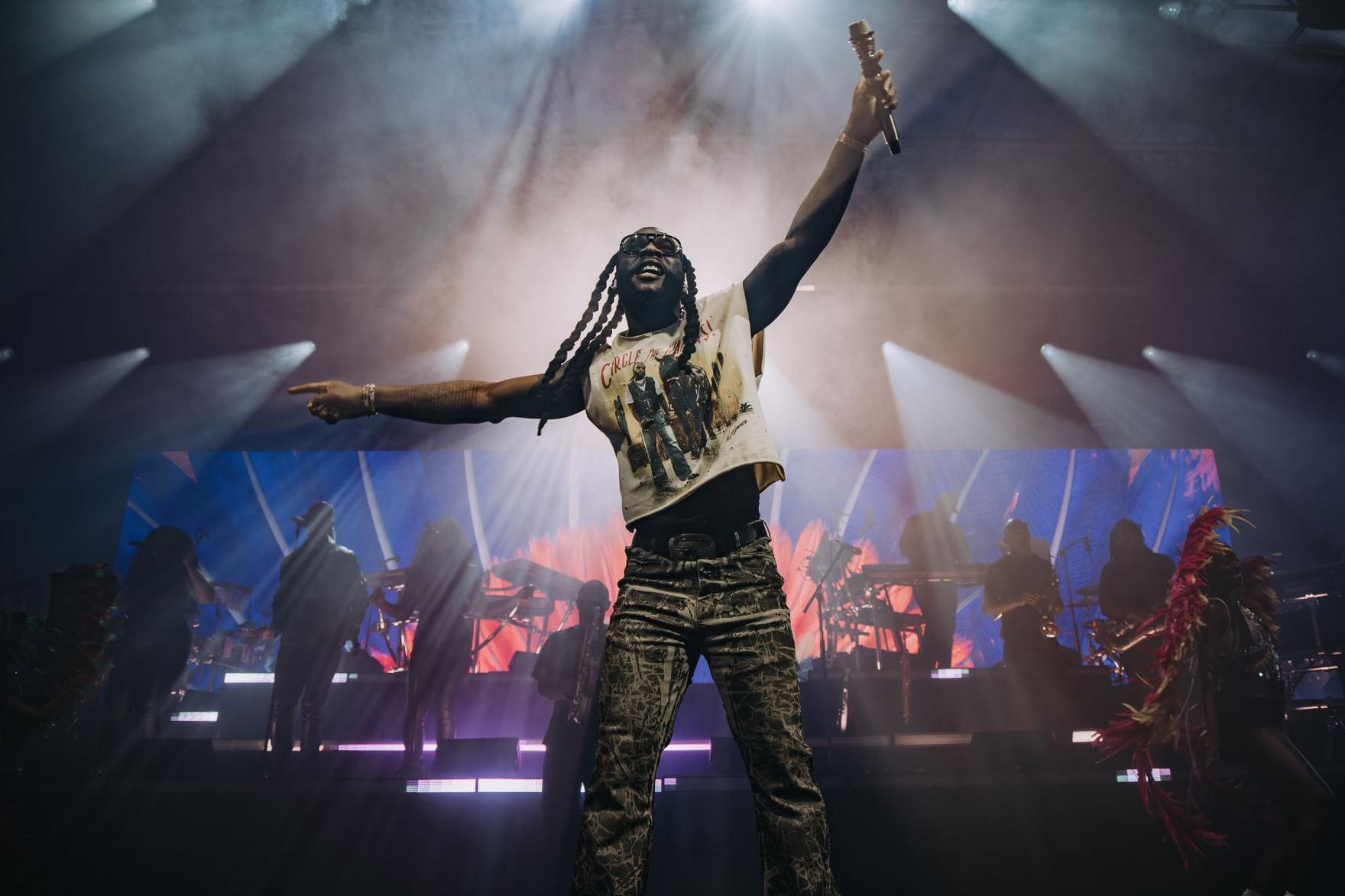No Sign of Weakness: Burna Boy on Keeping Nigeria’s Rhythm Moving
Burna Boy doesn’t walk – he glides. The Nigerian superstar moves through the world with the kind of confidence that can’t be taught and the kind of experience that bleeds into every track he makes. Born in Port Harcourt and shaped by Lagos, Burna is no stranger to motion and in Nigeria, motion isn’t just movement, it’s survival.
The streets of Port Harcourt and Lagos are built on hustle, rhythm, and self-belief. Every step is a statement, every 'fit a reflection of where you’ve been and where you’re headed. Burna grew up surrounded by that energy, and it’s this sense of forward motion that still fuels him today.
It’s in the way he speaks, performs, and the way he laces up. Whether he’s rocking vintage heat or the latest prototypes, every pair tells a story. As he kicks off his No Sign of Weakness World Tour, Burna’s mission stays simple: keep moving, keep elevating. We caught up with him ahead of the show to talk about his upbringing and the culture of sneakers in Nigeria.

How it Started: From Injury to Identity
Burna’s sneaker story doesn’t begin in a boutique or a collector’s room. It starts in Port Harcourt, Nigeria, as a child – and through an accidental household injury.
‘My earliest sneaker memory actually came from a pretty wild experience,’ he says. ‘When I was a kid, I had a hot water accident while playing hide and seek. I was hiding under the table and accidentally spilled a teapot of hot water on my foot. It was a bad burn, and I remember my mom buying me a pair of high-tops to protect the wound so it wouldn’t turn into a keloid. Funny enough, my memory isn’t really about the injury itself, it’s about those shoes. I wore them every single day for months. They went with everything, and made me feel so cool. Even after my foot healed, I couldn’t let them go. I think that’s where it started for me.’
That moment was more than a style set; it was the birth of a relationship. Sneakers became Burna’s first taste of transformation. In a place where expression is often improvised, they gave him confidence, freedom, and identity.
For many Nigerians of Burna’s generation, that sentiment rings true. Sneakers weren’t about hype. They were protection, performance, and personality all rolled into one. Before sneaker culture found a global spotlight, it lived quietly in schoolyards and markets across the country, where kids would save for months to buy one pair they’d wear everywhere. ‘A fresh pair can transform how you feel,’ says Burna. ‘That’s never changed.’
‘Now what do I wear? It depends on the mission. When I’m flying, it’s all about ease. I go for something breathable, light, and easy to slip on. When I’m performing, I want support and grip. I move a lot on stage, so I need sneakers that can handle that energy without slowing me down. In my old days, I wore some pairs for so many shows they became part of the setlist.’
The Birthplace of Streetwear DIY
If Lagos had a sneaker motto, it’d be ‘make it work.’ Before global colabs and resell apps, kids in Nigeria were remixing sneakers out of necessity.
‘Everyone had their style. Some people went flashy, others kept it classic,’ Burna says. ‘It was all about expression. Sneakers weren’t just shoes; they were how you told the world who you were before you even spoke. We didn’t have easy access to all the international drops, so people got creative. You’d see guys customising their pairs, swapping laces, repainting soles. It was like streetwear DIY before social media made it cool. Lagos has always been about turning limitation into innovation.’
That ingenuity traces back decades. From the early days of imported trainers sold in open-air markets like Yaba and Balogun, Nigerians learned to personalise what they could find. If your favourite artist wore something on MTV Base, you’d figure out how to recreate it. That do-it-yourself creativity is what laid the groundwork for Nigeria’s current streetwear boom where designers like WAF, Severe Nature, and Ashluxe now sit shoulder to shoulder with global labels.
The backbone of that boom is the streets’ expressive energy. ‘Nigerians don’t follow trends; we remix them,’ Burna says. ‘Style here isn’t about labels. It’s about the attitude.’ Today, that same culture of revision echoes through Afrobeats, photography, and design with that constant urge to innovate even when resources are scarce. Lagos is no longer just responding to global culture, but exporting its own version of it.
‘They see fashion and sound as one language,’ Burna says. ‘The kids now dress the way my music sounds – free, bold, experimental. I think they’re learning that identity doesn’t need permission. The new generation is rewriting what African cool looks like, and I love that.’
From Lagos to Accra and Johannesburg to Nairobi, sneaker and streetwear scenes are exploding right across the continent. Local boutiques are emerging, homegrown brands are collaborating with global names, and young Africans are proving they’re not after validation, they’re the ones helping set global trends.
Burna's Bond With On
Today, Burna’s sneaker evolution has gone global, but his philosophy hasn’t changed. It’s still about movement, not status.
‘You’d find everything from vintage classics to new tech silhouettes,’ he says of his rotation. ‘I don’t really hoard sneakers, I wear them. Every scuff means it lived a life with me.’ That practicality led him to On, the Swiss performance brand built on precision and minimalism. Burna’s partnership with On might’ve surprised some, but to him, it was destiny.
‘It started from a place of respect,’ he explains. ‘I was already wearing On because of the comfort and design. Their product fits my lifestyle of movement, performance, and travel. When we started talking, I liked that they weren’t chasing hype. They were building something real. The partnership came naturally because it wasn’t just about sneakers. It was about alignment, strength, endurance, authenticity. We both care about energy and how it moves people.’
Together, they’ve launched No Sign of Weakness x On, a campaign built on ‘movement with meaning,’ Burna says. ‘That’s what it’s about.’
The collaboration feels less like a brand play and more like a continuation of Burna’s personal evolution, on and off the stage. For an artist who built his career on pushing boundaries and carrying his culture wherever he goes, On’s performance ethos matches his drive: keep going, no matter what stands in the way.

Looking Forward: Truth Over Trend
Burna’s style has never been concerned with fitting in. Whether he’s wearing luxury threads or a Lagos thrift find, his choices are primal and a true mirror of his mood.
‘I don’t chase trends; I chase truth,’ he says. ‘My style is instinct. If I put it on and it feels like me, that’s all that matters. I can wear a full high-end fit or something made by a young creative from Lagos with the energy to match. I think people respond to that honesty. When you know who you are, everything you wear becomes part of the story, not a costume.’
That ‘truth over trend’ mantra mirrors Nigeria’s wider creative rise. Across Africa, artists are refusing to wait for validation from the West. Instead, they’re defining their own standards of authenticity. Independence pulses through it all, from the beats of Port Harcourt to the runways of Lagos Fashion Week.
It’s a legitimacy paralleled in Burna’s music – an Afro-fusion sound blending dancehall, hip-hop, and traditional rhythms – and its candour has turned Burna into a cultural bridge. ‘This is how we preserve truth,’ he explains. ‘Every beat and lyric is a way to document what we’re living through. I come from a culture of oral history, where people pass wisdom, joy, and pain through words and rhythm. So even when I’m making a turn-up record, there’s always a message somewhere in there. Music lets me say what people feel but can’t always articulate. That’s the responsibility of storytelling: to remind people who they are and where they come from.’
For Burna, music, fashion, and storytelling are one united gesture in a celebration liberated from needing anyone’s permission.
As he steps into another global chapter, Burna brings his people and his message with him as he wears his stories, the grind, and Africa’s rhythm on his feet.
‘My people: I see you, I feel you, and I carry you with me every time I step on stage,’ he says.‘You represent the strength and pride of home, even thousands of miles away. Keep building, keep shining, and keep showing the world what Nigeria stands for: resilience, joy, and excellence.’
